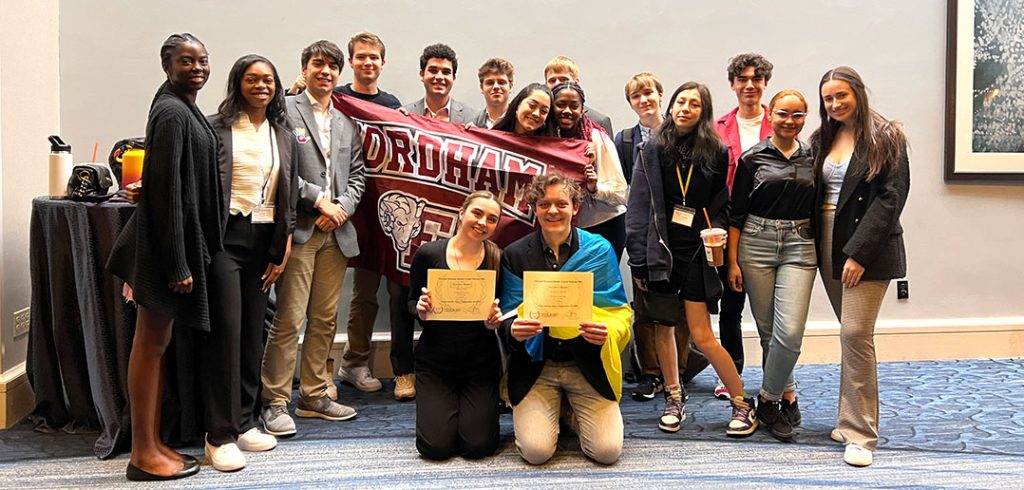Vidal, a native of Caracas, Venezuela, who is majoring in economics and political science, first joined a Model U.N. club when he was just 11, and it’s been a part of his life ever since.
“You really find a community of very knowledgeable, nice, and warm people striving to find solutions in this world,” he said of the organization, which has chapters in middle schools, high schools, and colleges.
“You have people [in the world]who like to criticize, but you also have the problem-solving kind of people. We’re trying to be those kinds of people, actively participating in solving issues like climate change, human rights violations, wars or conflicts, things like that.”
Last month, the Model U.N. team at Rose Hill which Vidal is a member of scored a big victory, winning the equivalent of a third-place prize at HNMUN, the annual competition at Harvard University that is the field’s most prestigious.
Next week, eight members of the club, which first formed in 2015, will head to Paris, where they will compete in WorldMun, the World Model United Nations. They will be part of a mock delegation at that conference, “representing” the nation of Togo. This is the first year that the club has been able to attend a full slate of four conferences per semester, after the Covid-19 pandemic restricted travel.
Lara Petrunis, a sophomore from East Brunswick, New Jersey, who is majoring in political science and is also part of the club, said she joined Model U.N. in high school as a way to expand her horizons.
“I don’t know if a lot of other high schools were like this, but they were focused a lot on American history where I was, and I wondered, ‘Where’s the other history?’ I wanted to learn more about the rest of the world and not just have an American-focused perspective,” she said.
At Model U.N., Petrunis has had to learn about issues such as the economy of Singapore, on whose behalf she once advocated at an economic and social commission for Asia and the Pacific. At another event at Boston University, she attended a committee representing the African National Assembly and made a case for how to reduce the national debt of Djibouti.
“It’s great to meet people from other schools because there are people from all around the world,” she said.
“I really like debating these various issues with people, gaining new ideas and perspectives, and coming up with solutions.”
The team’s Honorable Mention award—which is the equivalent of third place—in February was for the performance of Alex Yankovsky, a junior, and Jimena Perez, a sophomore, who represented Canada on a mock NATO committee.
Diplomacy, research, and rhetoric are key to success, said the group’s advisor, Melissa Labonte, Ph.D., an associate professor of political science.
“It’s all about how you work with others. It’s about the negotiations that you engage in, and it’s about the tone that you set,” she said.
“Just to go back to Ignatian principles. It’s all about being men and women for others and cura personalis. This is a great example of our students going out there and engaging in a realm where those Jesuit principles can really be an added advantage for them.”

